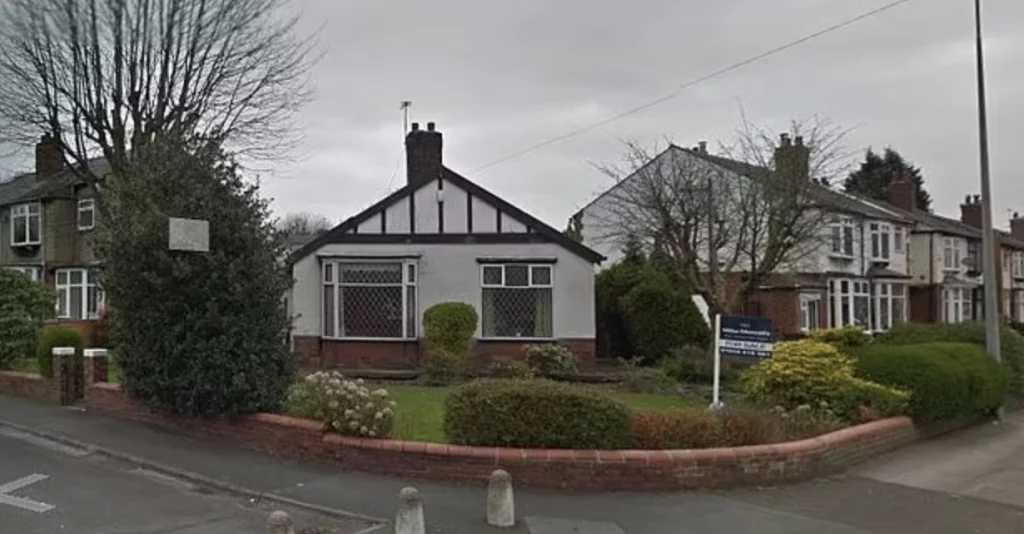In a quiet suburban neighborhood in Bolton, Greater Manchester, a homeowner has found herself at the center of controversy after she transformed her front garden into a spacious parking lot. Accusations of wildlife habitat destruction and environmental harm have been hurled at her, prompting a heated debate on social media. In this article, we will delve into the details of this transformation, the homeowner’s perspective, and the wider implications of such actions.
The controversy began when pictures of the property on Bradford Road were shared on Twitter, unleashing a wave of criticism and condemnation. The images starkly contrasted the current condition of the front yard with its previous state as a lush green space adorned with trees, shrubs, and various plants. The transformation was evident – the once verdant garden had been replaced by a concrete parking pad surrounded by a grey brick wall. To some, this new look resembled a petrol station without the fuel pumps, adding fuel to the fire of public outrage.

Many social media users were quick to condemn the homeowner’s actions, accusing her of vandalism and lamenting the loss of a once-beautiful garden. Some argued that such renovations should not be legal and expressed sorrow at the perceived destruction of wildlife habitat. Others questioned the decision to replace the garden with concrete, primarily for the sake of parking convenience.
However, the homeowner, who chose to remain anonymous, has defended her decision to pave over the front garden. She insists that the pictures circulating online do not accurately represent the size of the area in question. Moreover, she stated that the removal of a mature tree was a necessity due to a leaking roof and moss issues. She initially trimmed the tree but found that it attracted birds, resulting in a messy environment below. In her words, “I can’t win.”
Addressing the allegations of wildlife habitat destruction, she emphasized that she lives on a main road where wildlife is scarce. She expressed frustration at the uproar caused by the removal of a single tree, stating, “For god’s sake, just leave me alone.”
One of the homeowner’s main reasons for the transformation was the challenge of maintaining the garden, given her demanding job as a nurse at Bolton hospital. Her busy schedule left little time for garden upkeep, and hiring a gardener was an additional expense she wished to avoid. She is currently in the process of selling the property, hoping that potential buyers will not be deterred by the online controversy.
While the controversy rages on, some of the local residents have a more understanding perspective. Ian Broadbent, a nearby resident, commented that he is not bothered by the transformation of the garden into a parking space. He described it as neat and emphasized that it had been like that for over two and a half years without any complaints from neighbors.
Doreen McGonagall, another local resident, knows the homeowner’s family and expressed a more sympathetic view. She mentioned that the family had a bad reputation in Farnworth years ago but had been trouble-free in their current neighborhood. Ms. McGonagall also praised the interior of the bungalow but noted that it did not appeal to her because of its proximity to a wooded wasteland.
The controversy surrounding this suburban front garden transformation raises important questions about property owners’ rights, environmental concerns, and the power of social media to influence public opinion. While some see it as an act of vandalism, others view it as a practical solution to the challenges of garden maintenance. The case serves as a reminder that seemingly mundane actions can ignite passionate debates about the environment and aesthetics.
In conclusion, the homeowner’s decision to convert her front garden into a parking lot has sparked a heated debate in her community and on social media. Accusations of wildlife habitat destruction and vandalism have been met with a staunch defense of her actions. This case highlights the complexities of property ownership and personal choices when it comes to the use of outdoor spaces in residential areas.